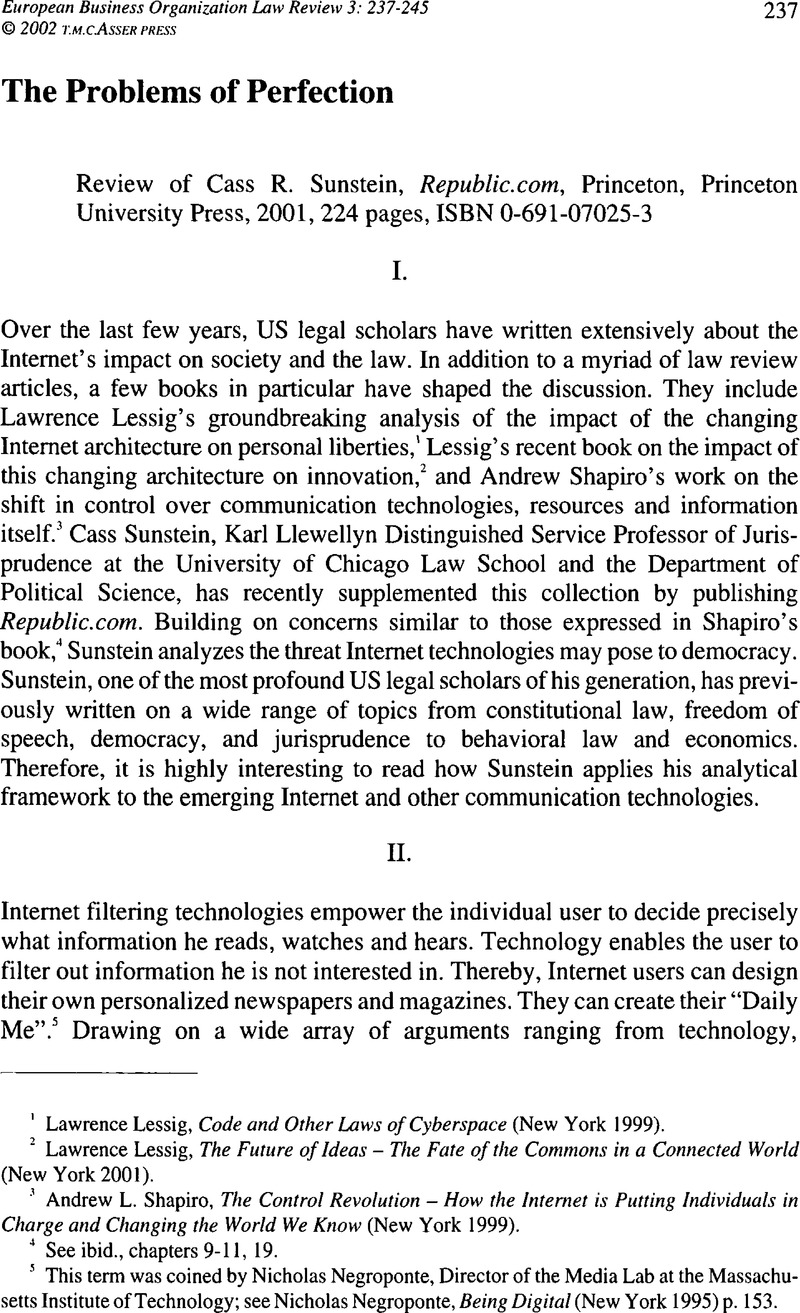No CrossRef data available.
Published online by Cambridge University Press: 17 February 2009

1 Lawrence, Lessig, Code and Other Laws of Cyberspace (New York 1999).Google Scholar
2 Lawrence, Lessig, The Future of Ideas – The Fate of the Commons in a Connected World (New York 2001).Google Scholar
3 Shapiro, Andrew L., The Control Revolution – How the Internet is Putting Individuals in Charge and Changing the World We Know (New York 1999).Google Scholar
4 See ibid., chapters 9-11, 19.
5 This term was coined by Nicholas Negroponte, Director of the Media Lab at the Massachusetts Institute of Technology; see Nicholas, Negroponte, Being Digital (New York 1995) p. 153.Google Scholar
6 This technology was originally developed at the Massachusetts Institute of Technology under the name “Firefly”.
7 See Hague v. Committee for Industrial Organization, 307 US 496, 515 (1939).
8 This idea was explored – among others – by Lawrence, Lessig, Code and Other Laws of Cyberspace (New York 1999) pp. 139–140.Google Scholar
9 The importance of the “commons” is also a recurring theme in current Internet law; see, e.g., the contributions to the Conference on the Public Domain at Duke Law School in November 2001, available at <http://www.law.duke.edu/pd>.
10 Sunstein, Cass R., Echo Chambers: Bush v. Gore, Impeachment, and Beyond (Princeton 2001)Google Scholar. Available at <http://www.pupress.princeton.edu/sunstein>.
11 The model of Slashdot (<http://www.slashdot.org>) may provide some guidance, but a system for a much larger and more diverse audience may pose totally different problems. Another example may be <http://www.elektronische-demokratie.de>, a discussion site about German privacy laws sponsored by the German Parliament.
12 After readers had complained that Sunstein was not practicing what he had taught in his book, he added links from his own website to prominent libertarian and radical feminist law professors.